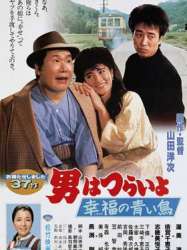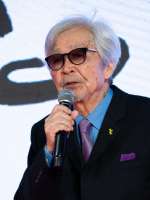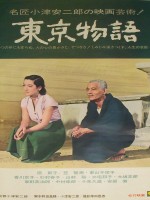Tsuyoshi Nagabuchi is a Actor Japonais born on 7 september 1956

Tsuyoshi Nagabuchi (長渕 剛, Nagabuchi Tsuyoshi, born September 7, 1956) is a Japanese singer-songwriter, actor, poet, and human-rights advocate, who is a prominent figure in Japanese popular music.
As a musician, he has sold more than 20 million records worldwide, and has appeared in various movies and television dramas. His wife Etsuko Shihomi is also a known actress.
Nagabuchi favored popular Japanese folk singers such as Takuro Yoshida, Ryo Kagawa, Masato Tomobe and Kenji Endo. Especially, a song called One Road Straight changed his view to the world. Their protest songs tempted him to become a musician. Eagerness to realize his dream made him buy a gut-guitar at the age of 15. In 1973, when he was 17, he made his first performance as a live act. Around 1974, he formed a folk duo called "Takeshi and Tsuyoshi" and gained experience as a performer. In 1975, he entered Kyushu Sangyo University, but eventually dropped out and chose the career of show business. At that time, he often performed at late-night bars. Some audiences booed him and threw bottles at him. Later, he reminisced about the old days and said that this unbearable experience trained his own spirit.
Debut
His career as a solo artist began in the mid-1970s. In 1976, he took part in a well-known music contest called "Yamaha Popular Music Song Contest", where he performed the song Ame no Arashiyama and won first prize. The next year, this song was released as his first single from JVC Victor Records (credited as Go Nagabuchi) and failed to chart. The approach of Ame no Arashiyama arranged by Motoki Funayama was enka-style and Nagabuchi wanted to avoid such a conservative style. Nevertheless, it was recorded and released despite his reluctance about the sound. Because of such disgraced treatment, he hates his debut single and would like to hide the existence of this song.
After the failed debut song, he contracted with Toshiba EMI and made another challenge to break onto the music scene again. His next single was Junrenka, released on October 5, 1978. In later years, he released a re-recorded version and reached #1 on the Oricon charts. His Debut album Kaze wa Minamikara was released in 1979. He released a second album in the same year and it sold over 580,000 copies and provided him with the first #1 hit record on Oricon. The album entitled Gyakuryū featured his early principal hit single Junko. At first, it was included in the album only, but cut as the single in 1980, it hit the top of Japanese single chart in August of the same year. Following the success both of the album and the single, he joined the ranks of the most popular singer-songwriters in Japan.
1980s
In 1980, Nagabuchi released another well-known Japanese folk song classic, Kanpai, which he wrote for his friend's wedding. It first appeared on the same-titled album and unreleased as a single, but gradually became famous around the country. In 1988, he recorded a new version for a single and it became his second #1 hit on the singles chart.
In his next three studio albums, Bye Bye, Jidai wa Bokura ni Ame o Furashiteru and Heavy Gauge, he attempted to get rid of the standard folk song style. After two successful albums in early 1980s, commercial success of his albums and singles declined one after another for about three years. Goodbye Seishun in autumn of 1983, his first smash-hit single since Junko, was written with Yasushi Akimoto for the TV drama series in which he starred. From the other drama program broadcast in 1982, he began acting career as a side job. He has ever appeared 14 TV dramas and 5 movies, including starring in several of them. In the 17th film of the movie series Otoko wa Tsurai yo in 1986, he acted with his future wife Etsuko Shihomi.
He disliked his own voice. To change it, he gargled with shōchū, and sang in an intentionally coarse voice. Eventually, his voice was gradually changed to a hoarse sound like Bob Dylan, whom he respected. The change of voice expression intensified his characteristics more and more. Thanks to such characteristic expression, he built up deep-rooted popularity in the mid-1980s. From the 1987 album License to Captain of the Ship in 1993, his six studio albums consistently reached #1 on the Oricon album chart. In particular, Japan in 1991 sold over a million copies and became his most successful record. Similarly, Shabondama, the first single cut from this album became a million-seller.
Source : Wikidata
Tsuyoshi Nagabuchi

As a musician, he has sold more than 20 million records worldwide, and has appeared in various movies and television dramas. His wife Etsuko Shihomi is also a known actress.
Biography
On September 7, 1956, Tsuyoshi Nagabuchi, the first son of policeman Kuniharu Nagabuchi and his wife Masuko, was born in Ijuin, Kagoshima. When he was a child, his body was very weak and he often suffered from asthma.Nagabuchi favored popular Japanese folk singers such as Takuro Yoshida, Ryo Kagawa, Masato Tomobe and Kenji Endo. Especially, a song called One Road Straight changed his view to the world. Their protest songs tempted him to become a musician. Eagerness to realize his dream made him buy a gut-guitar at the age of 15. In 1973, when he was 17, he made his first performance as a live act. Around 1974, he formed a folk duo called "Takeshi and Tsuyoshi" and gained experience as a performer. In 1975, he entered Kyushu Sangyo University, but eventually dropped out and chose the career of show business. At that time, he often performed at late-night bars. Some audiences booed him and threw bottles at him. Later, he reminisced about the old days and said that this unbearable experience trained his own spirit.
Debut
His career as a solo artist began in the mid-1970s. In 1976, he took part in a well-known music contest called "Yamaha Popular Music Song Contest", where he performed the song Ame no Arashiyama and won first prize. The next year, this song was released as his first single from JVC Victor Records (credited as Go Nagabuchi) and failed to chart. The approach of Ame no Arashiyama arranged by Motoki Funayama was enka-style and Nagabuchi wanted to avoid such a conservative style. Nevertheless, it was recorded and released despite his reluctance about the sound. Because of such disgraced treatment, he hates his debut single and would like to hide the existence of this song.
After the failed debut song, he contracted with Toshiba EMI and made another challenge to break onto the music scene again. His next single was Junrenka, released on October 5, 1978. In later years, he released a re-recorded version and reached #1 on the Oricon charts. His Debut album Kaze wa Minamikara was released in 1979. He released a second album in the same year and it sold over 580,000 copies and provided him with the first #1 hit record on Oricon. The album entitled Gyakuryū featured his early principal hit single Junko. At first, it was included in the album only, but cut as the single in 1980, it hit the top of Japanese single chart in August of the same year. Following the success both of the album and the single, he joined the ranks of the most popular singer-songwriters in Japan.
1980s
In 1980, Nagabuchi released another well-known Japanese folk song classic, Kanpai, which he wrote for his friend's wedding. It first appeared on the same-titled album and unreleased as a single, but gradually became famous around the country. In 1988, he recorded a new version for a single and it became his second #1 hit on the singles chart.
In his next three studio albums, Bye Bye, Jidai wa Bokura ni Ame o Furashiteru and Heavy Gauge, he attempted to get rid of the standard folk song style. After two successful albums in early 1980s, commercial success of his albums and singles declined one after another for about three years. Goodbye Seishun in autumn of 1983, his first smash-hit single since Junko, was written with Yasushi Akimoto for the TV drama series in which he starred. From the other drama program broadcast in 1982, he began acting career as a side job. He has ever appeared 14 TV dramas and 5 movies, including starring in several of them. In the 17th film of the movie series Otoko wa Tsurai yo in 1986, he acted with his future wife Etsuko Shihomi.
He disliked his own voice. To change it, he gargled with shōchū, and sang in an intentionally coarse voice. Eventually, his voice was gradually changed to a hoarse sound like Bob Dylan, whom he respected. The change of voice expression intensified his characteristics more and more. Thanks to such characteristic expression, he built up deep-rooted popularity in the mid-1980s. From the 1987 album License to Captain of the Ship in 1993, his six studio albums consistently reached #1 on the Oricon album chart. In particular, Japan in 1991 sold over a million copies and became his most successful record. Similarly, Shabondama, the first single cut from this album became a million-seller.
Usually with
Filmography of Tsuyoshi Nagabuchi (1 films)
Actor

Tora-san's Bluebird Fantasy (1986)
, 1h42Directed by Yōji Yamada
Genres Comedy
Actors Kiyoshi Atsumi, Etsuko Shihomi, Chieko Baishō, Masami Shimojō, Tsuyoshi Nagabuchi, Narimi Arimori
Roles Kengo Kurata
Rating60%





During his travels, Tora-san comes across a traditional theater he used to visit, and discovers that one of his old friends has died. Tora-san and his family help the friend's daughter, who becomes romantically involved with an aspiring artist.
 Connection
Connection


